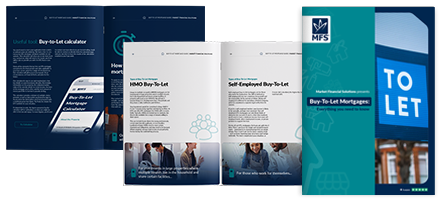
Written by Omkar Hushing
Deputy Chief Mortgage & Operations Officer – Front End
Market Financial Solutions are a bridging loan and buy-to-let mortgage provider and are not legal, financial, investment or tax advisers. This document is for informational purposes only and does not, and should not be considered, to constitute legal, financial, investment or tax advice or be relied upon by any person to make a legal, financial, investment or tax decision. Therefore, Investors are encouraged to seek appropriate professional advice. The information in this content is correct at time of writing.

For most homebuyers and property investors, taking out a mortgage is essential to completing a purchase. However, the process through which lenders assess mortgage applications can seem complex and daunting. As such, this blog will explain what underwriters do and how the mortgage application process works.
What do a underwriters do and why does a mortgage application go to them?
Mortgage underwriting is the process that mortgage lenders use to assess your creditworthiness. They need to determine whether to approve you for a loan. For the most part, applications for mortgages can involve £100,000s. As such, lenders must first consider whether the risk they are taking on by lending you the money is acceptable.
When considering risk, lenders employ an underwriter to assess the following details:
- Your credit history
- Your affordability
- The property in question
- Your eligibility based on the lenders criteria and wider fraud laws and regulations
Depending on your specific circumstances, underwriting decisions can be made in as little as three days. However, it can take longer depending on the following circumstances:
- The experience of the underwriter
- The complexities of your application
- The volume of applications
Once an underwriter approves an application, it’s likely that you receive a mortgage offer shortly after. However, if your situation changes, lenders reserve the right to break off the deal.
What do underwriters do first?
The methods and processes of an underwriter really depend on the bridging and buy-to-let criteria of the lender. That said, for the majority of lenders, the following risk assessment procedures are taken before the underwriting stage begins:
-
Pre-soft credit check
With a pre-soft credit check the lender ‘pre-approves’ you for the loan or mortgage that they are applying for. No detailed credit check is conducted. This allows lenders to rule out early applications based on broad-brush filters like age, mortgage term or bankruptcy.
But there are other factors that can influence a lenders’ decision. These are typically performed when you wish to learn more about the financial products that a lender offers. They are also an important way in which lenders prevent fraud.
-
Scorecarding
The scorecard of a lender will consider your particular financial circumstances and determine if it is likely that you will be able to pay back their loan. They may check your credit report to reveal a history of late payments or more debt than you can manage. This would result in a poor score for the case. In contrast, if you consistently make on-time payments, you will get a high score.
For many lenders, there is a minimum score that a borrower must achieve if the application process is going to continue, which is usually quite high.
After achieving a good score, it’s likely that you will receive a Mortgage Agreement in Principle. This is an important aspect of the underwriting process that a lender will use to accept or reject applications for mortgages or loans.
-
Property valuation and underwriting
The valuation provided by a mortgage lender differs from an estate agent’s property valuation. The goal of an estate agent’s valuation is to estimate a property’s market value based on its size, location, condition, and a number of other variables. However, a mortgage lender’s valuation is substantially shorter (it will often be 2-3 pages) and is intended purely for the mortgage lender’s use.
Primarily, this process helps to check that the property is worth what the borrower says it is. It is therefore an important indicator of the amount of risk that an application entails. In other words, this procedure will help an underwriter to ensure that it is in the lender’s best interest to supply a mortgage for the property. As such, there are some properties that some lenders will be less keen to provide a mortgage for.
Generally, the cost of the survey will be added to the mortgage fee by the lender.

What do underwriters do next?
Once a risk assessment has been carried out, the underwriting process begins. Usually, the final underwriting decision is based on the following considerations:
-
Policy Rules
These are a set of ratios and calculations that you must meet to proceed. These include information about your age, credit history, legal status, permitted loan amounts, and LTVs.
-
Credit Reporting
At this stage, whilst your credit score is considered, it is not the be-all and end-all. The lender is purely assessing whether you have the capacity to repay the mortgage based on your own unique credit criteria and models.
-
Affordability Assessment
The majority of lenders combine an income multiple calculation with an additional affordability model. Your ability to repay the mortgage while keeping your pre-existing outgoings, such as bills, taxes, childcare, etc., will be evaluated by this affordability assessment.
Lenders will also ‘stress-test’ your ability to repay the mortgage should your financial situation take a turn for the worse.
-
Fraud and Money Laundering Checks
The lender must also check where the money is coming from. If you hope to use a gifted deposit, the lender will conduct the necessary checks. Similarly, they might ask you to clarify some transactions from their bank statements.
-
The Property
Some lenders think loaning money on some properties is too risky. To ensure it meets their requirements, they will examine the type of property, its structure, construction method or materials, date of construction, in addition to its value.
Why would an underwriter reject a mortgage application?
For the majority of rejected cases, there are two main reasons that could have impacted the assessment at this stage.
Firstly, if your situation has changed since the start of the process, the case will often be rejected. For example, if you lose your job, or take out another loan elsewhere, the risk to the lender would increase.
Secondly, as underwriters leave no stone unturned, they might find something amongst your finances that increases the risk to the lender. This could be a failure to disclose an existing financial obligation, or inconsistencies in income.
Indeed, if an application has been declined, you might want to improve your credit score, minimise debts or find capital for a bigger deposit to get the deal over the line.
However, a mortgage rejection will be put on a borrower’s credit report, so it’s best to wait a few months before applying again.
What to look for in an underwriter
What is clear from the outset of the underwriting process above is that underwriters must have the relevant skills and experience to properly assess an application.
At Market Financial Solutions, we pride ourselves as specialists in dealing with complex cases. As such, our underwriters are highly skilled, assessing each application on its individual merits – we do not use an automated, tick-box approach to making decisions.
This enables us to tailor our financial products to your specific needs, even if you have an adverse credit score. We deliver flexible solutions for a variety of buy-to-let mortgage and bridging loan scenarios.
Our underwriters are not daunted by complex deals because they have completed deals for all manner of unusual cases and complex clients.
For example, if a landlord with a poor credit score wishes to convert a dilapidated building into a buy-to-let property, they might struggle to acquire a financial solution from a high- street lender due to their stringent criteria. However, our approach allows us to factor in the future profitability of the property, reducing risk and allowing us to take on applications that other lenders might shy away from.
We also ensure that all enquiries receive initial terms within just four hours, establishing our commitment to our client and demonstrating the speed at which our underwriters can work.
To find out more about our underwriting process, and the financial solutions that we can provide, head over to our website.
The Complete Guide to
Buy-to-Let Mortgages
Everything you need to know
- Fundamentals
- Different mortgage types
- Useful tools
- Industry stats & more





